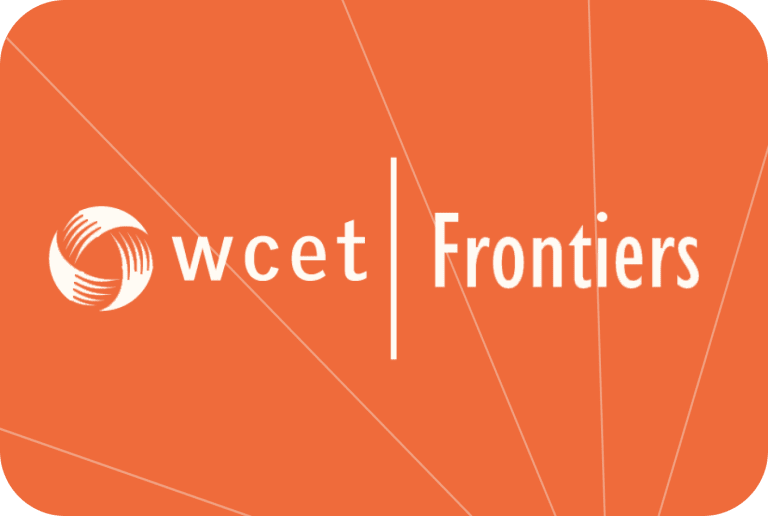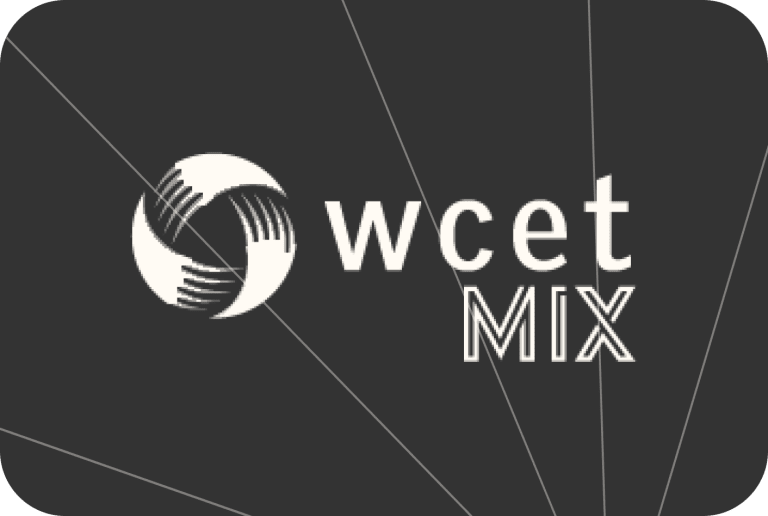When we hear the term agnostic, we typically hear it in the context of an individual’s religious or political views, denoting someone who is noncommittal or undogmatic in their thinking. While it can sometimes be a loaded term, the descriptor “agnostic” insinuates an individual’s openness to engage with a multitude of ideologies, so as to not inhibit the experience of other valuable or meaningful systems of thought. In truth, one of the main values of agnosticism is its inherent pliability, its ability to connect and engage with a multitude of belief systems to ultimately create a more robust and inclusive system of thought for an individual.
However, agnosticism is not tethered to a religious or political context. However, in a broad sense, agnosticism’s noncommittal nature applies to other areas, as well. More specifically, agnosticism is a term recently associated with technology. By definition, when applied to software or hardware, the term agnostic means that a specific digital tool or technology is designed to be compatible with different devices or operating systems. Think here how web-based tools like the YOU platform or HelpCompass are accessible on desktops, laptops, phones, and tablets, as well as how their private-label nature allows any institution to implement them with their own customized brand standards and imagery. This kind of untethered technology, with its ability to interact with an array of operating systems, interfaces, and institutions allows for an expanded reach and impact, which helps to serve a wider range of campus ecosystems and diverse student populations.
While there is a lot of innovative work being done to make agnostic technologies that can interact with a wide number of digital systems, the YOU at College team has done our own work to create unique technologies that are agnostic in another way: building digital mental health and well-being platforms for higher education that are resource agnostic. What, you might ask, does it mean for a tool to be resource agnostic? For our team, building a resource-agnostic tool means that we created a digital front door that is customizable for every institution of higher education to aggregate and amplify all of their existing resources, services, and programming, ensuring a singular access point for every student to get the comprehensive support they need both on campus and online. This resource agnostic approach allows students to engage with all of the personalized digital tools provided within our tools by our content team, while also increasing awareness and access to those existing resources offered through their specific campus, creating a more cohesive and harmonious student support network.
See below to explore three positive outcomes from this unique approach to supporting students through our resource-agnostic digital solutions:
1. A Centralized Hub Designed To Support Every Student Need
In setting out to design resource agnostic tools, one of the main intentions behind that decision was to create a singular digital connection point for students to get help with anything that they might face during college. In doing this, we found that, by centralizing and curating resources for students both on campus and online, our tools could increase the likelihood that students actually accessed the right support when they needed it. Our research showed us that LMS tools were great at centralizing a school’s efforts to help students stay on task with their coursework, but nothing existed that could do the same for students with everything that comes with life outside of the classroom. And even though students might have an LMS tool to help stay on top of their coursework, no digital tool existed to help students when they were dealing with stress or anxiety because of that coursework, or how academic stress can impact their social relationships during college, or how basic needs insecurity can impact their academic success. Our unique student-centered design process showed us that students did want a centralized hub for accessing support with everything accompanying life in college, both in and out of the classroom, while also better connecting them with their campus community.
As you might have read elsewhere, one core belief of our work at YOU at College is the understanding that mental health, well-being, and student success do not exist in a vacuum. Everything a student experiences in their college journey impacts their mental health and overall flourishing during school. In order to effectively build a centralized hub for campus communities, our tools had to address everything a student is balancing: mental health, physical health, academics, basic needs, social connections, diversity, identity, belonging, career readiness, and much more.
A key component of developing a digital front door to achieve this target outcome for every campus community was not only providing our own comprehensive, evidence-based framework for student support, but creating a tool that could be resource agnostic to highlights all of the existing campus programming, services, and resources available to every student based on their needs. In doing this, tools like the YOU platform and HelpCompass are helping to bridge the gap by connecting students to those resources in their community, while ultimately strengthening that institution’s overall support network and how it can meet the needs of its diverse student population. This centralized, resource-agnostic approach led one student from Illinois Valley Community College to say “When I first heard about YOU, I thought it was great that the college was invested in its students – and not just academically. They paired this platform with some of the on-campus resources for students which helped me make connections with others and feel more close to the school as a whole.”
2. Increased Pathways To Help-Seeking for Students
Another core aspect of our resource-agnostic approach comes through leveraging our digital tools to create a multitude of entry points for students to access the help they need from the first time they step foot on campus, all the way through graduation. When we developed our technology to be the digital front door for campuses, we knew that success in this effort required us to build multiple pathways for connection with campus resources and services within our tools, while also providing a range of content modalities to ensure students had options when seeking help.
How we accomplish this through a tool like the YOU platform, for example, is by creating a range of different types of content for students to connect with:
- – 2,500+ evidence-informed resources inclusive of articles, well-being tips, and videos broken out into our well-being framework
- – Comprehensive Self-Check Assessments
- – Goal-Setting
- – Self-Paced Interactive Well-Being Modules
- – Peer Stories
- – Help In Crisis Resources
While our team built our own robust content network to comprehensively support college students within our platforms, we also had research and feedback telling us that that was only addressing half the challenge. To more effectively meet student needs, based on what they were telling us, we also needed to include multiple pathways from our platforms directly to their campus communities.
By creating our tools to be resource agnostic, we are able to pair our dynamic content algorithm with a campuses’ existing network of care to ensure that when students are engaging with content in our platforms, like reviewing their results from a self-check assessment, or exploring a content domain related to those well-being areas they need help with, they are also being served curated campus resources relevant to those needs. We know that students endorse wanting a confidential and anonymous tool to get personalized help in their daily lives, but they also want their institution to provide services for them to get more immediate help on campus when and if they need it. By investing in resource agnostic tools like the YOU platform or HelpCompass, schools are able to provide comprehensive, robust approaches to student support that curate and streamline multiple pathways for students to get the help they need.
Our feedback shows us that this unique, resource agnostic approach is working:
- – 7 in 10 students agreed that YOU help them access resources relevant to their identities.
- – 7 in 10 students agreed that YOU increased their awareness of campus resources, with 79% of them taking action with that resource.
- – 73% of students said YOU supported their overall mental health and well-being.
- – 6 in 10 students agreed that YOU helped them navigate their college experience.
3. Tools That Elevate the Campus Experience
A final and foundational aspect of developing resource-agnostic digital tools like YOU for Students or HelpCompass is that, not only do they increase awareness and access to vital student support services on campus, but they also help unite campus communities by elevating student support as a visible campus priority. Take, for example, Help compass: at Cal State Fullerton during peak times in their 2023 summer semester, like midterms, finals, and new student orientations, HelpCompass saw over 700 unique weekly visits, with the 10 most engaged campus resources seeing 700+ views and 350+ referrals to campus services. By investing in a digital, resource-agnostic tool like HelpCompass, schools like CSU Fullerton are able to not only show their students, faculty, and staff that they care about their well-being and success, but they are also able to leverage existing technologies to better connect anyone in their campus community to those relevant resources that can support them in their times of need.
Additionally, tools like the YOU platform that put campus identity front and center help students know that their institution has invested in services to support them in every aspect of their journey. Platforms like YOU help students by providing a 24/7 resource to access immediate support with things that impact them, while also increasing awareness of every department across a campus by promoting services like clubs and volunteering, counseling centers, residence life, student life, identity-specific services, academic advising, wellness centers, and rec centers.
Our fundamental aim in building resource agnostic platforms is to better support campus ecosystems with 24/7 access to comprehensive and personalized tools, while streamlining direct connection to all relevant and available campus services. By investing in this kind of technology, YOU at College is able to integrate our solutions into a range of campus communities, including public schools, private schools, trade schools, community colleges, small private liberal arts colleges, online schools, and more to help every institution better meet the needs of their diverse student populations, increasing the likelihood that students connect with the support they need regardless of where they are in their college journey.
To learn more about how our unique approach can support your campus community, schedule a demo with our team today.




